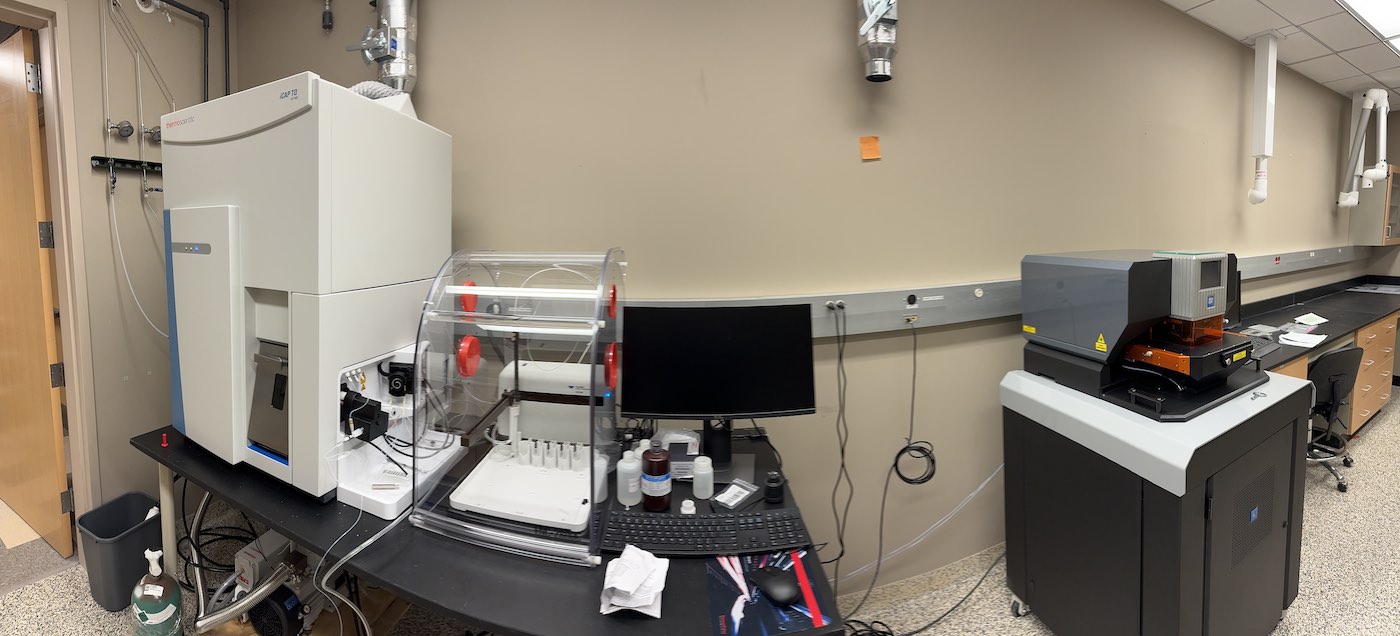
ICP-MS Core Facility
Inductively Coupled Plasma Mass Spectrometry (ICP-MS) is an analytical technique that is used across the earth, environmental, and planetary sciences, and beyond. The UT ICP-MS Core Facility currently includes a ThermoFisher iCAP TQ ICP-MS and an ESL NWR193nm excimer laser ablation system. This Core Facility provides elemental abundance measurements for both UT-affiliated and external users, covering nearly all non-volatile elements in a wide variety of natural and synthetic samples, ranging from water/ice, soils to silicate rocks. A Neoma MC-ICP-MS will be added to this Core Facility.
Lab Pictures
The following images show the space available for the future clean labs and laboratory facilities, which will include future ICP-MS instrumentation for elemental and isotopic analytical geochemistry.
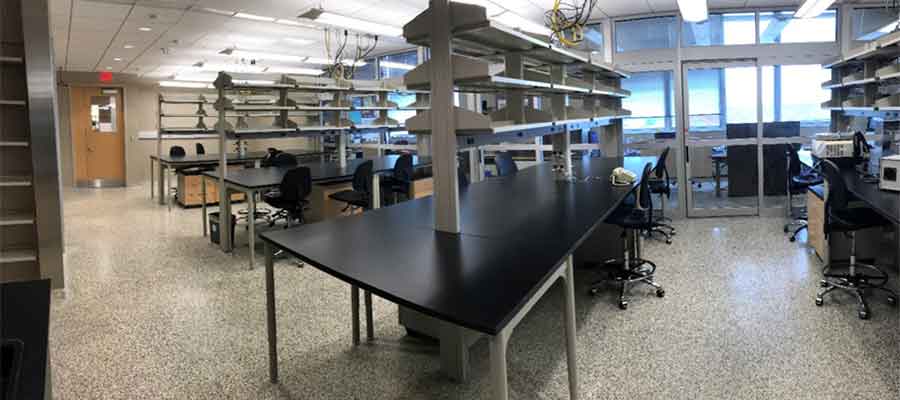
This is open lab space in Strong Hall, from which the clean labs and instrumentation lab space is accessible. All of these labs are located near the main elevators (including freight) for Strong Hall. This space can be used for any number of purposes, including benchtop chemistry, computer analysis, or sample preparation. The benches have gas, vacuum, and air lines, and there is building-supplied deionized water.
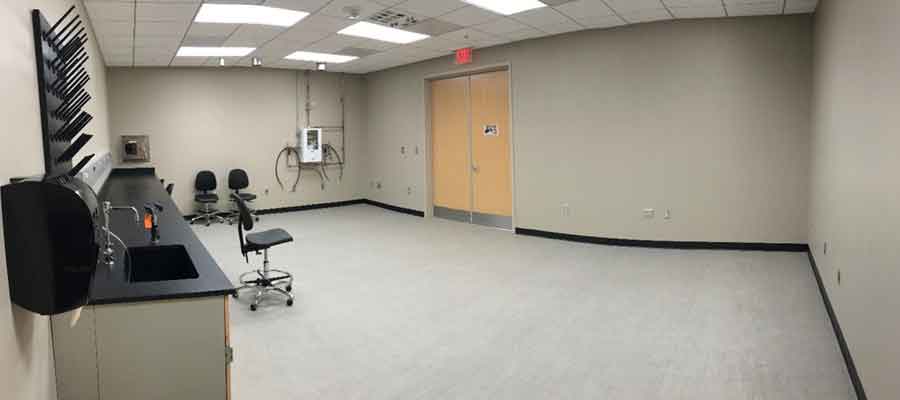
This customizable space is intended to house the analytical instrumentation in Strong Hall. We planned for a quadrupole ICP-MS and a multicollector-ICP-MS because the combination of both instruments would provide the greatest flexibility and sensitivity required for nearly all analytical geochemistry that occurs in EPS, as well as within other units on campus, and would even be attractive to potential users within the region. The quadrupole ICP-MS would be used to analyze solutions, from water to acid digestions of solid samples (e.g., rock, biological, agricultural, or engineered materials) with the addition of a laser ablation system. The MC-ICP-MS would provide sensitive isotopic analyses that would not be possible or practical using the quadrupole. Other instruments, such as a single-collector ICP-MS or a high resolution ICP-MS, are also possible. The double doors lead to an equipment corridor where Argon dewars, chillers, pumps, and other “back-of-the-house” instrumentation can be stored. The lab has an Argon gas manifold and a motorized cart is available to move dewars. The equipment corridor also have emergency power access for uninterruptible power.
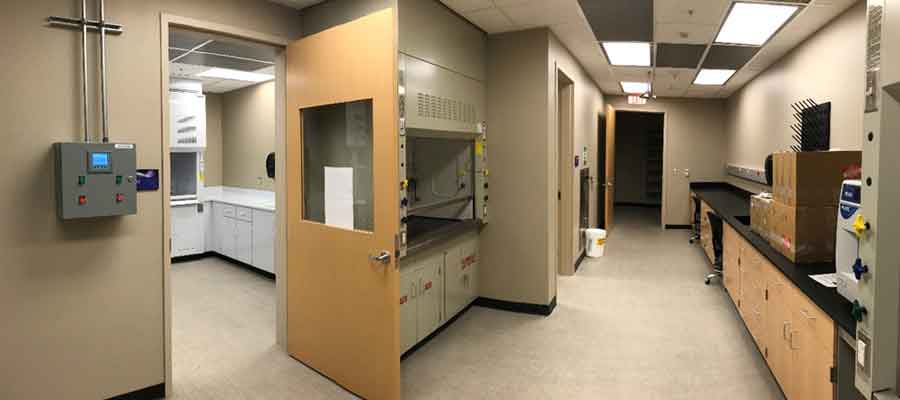
This space is located off of a “changing room” and has positive air pressure and HEPA filtration. This lab space is intended to be used as “clean room” space.
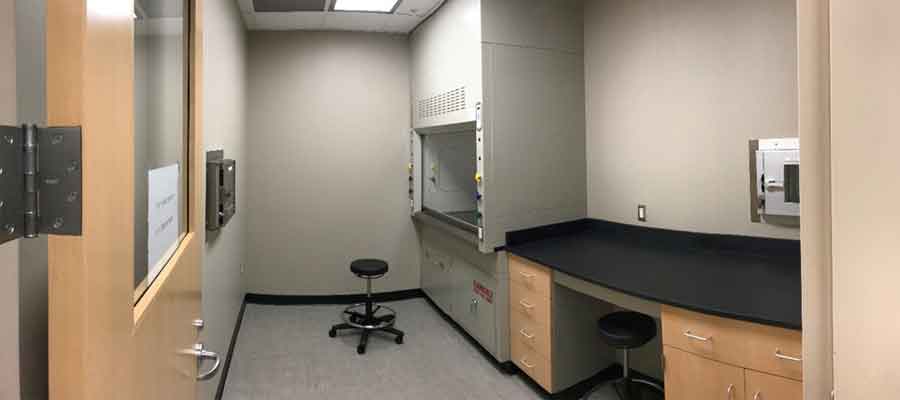
This is a balance room inside the “clean room” space and also have HEPA-filtered air handling.

A panorama of the balance room (right side), looking into more clean lab space with two additional fume hoods, the door to the “ultraclean lab” (center) and a perchlorate hood (left-of-center).
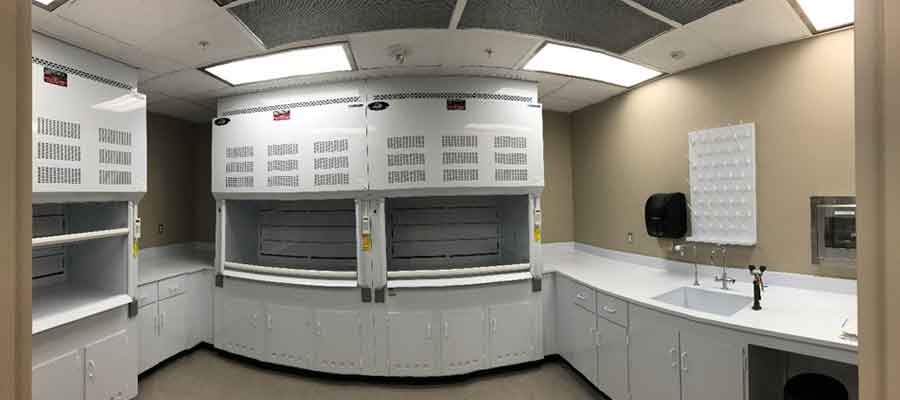
Who can use the lab?
We provide services for research and commercial users inside and outside of the University of Tennessee.
There is no technical staff support for this teaching laboratory and no turn-key analyses are available. If analytical services are needed, then people should contact the University of Tennessee’s Water Quality Core Facility (WQCF).
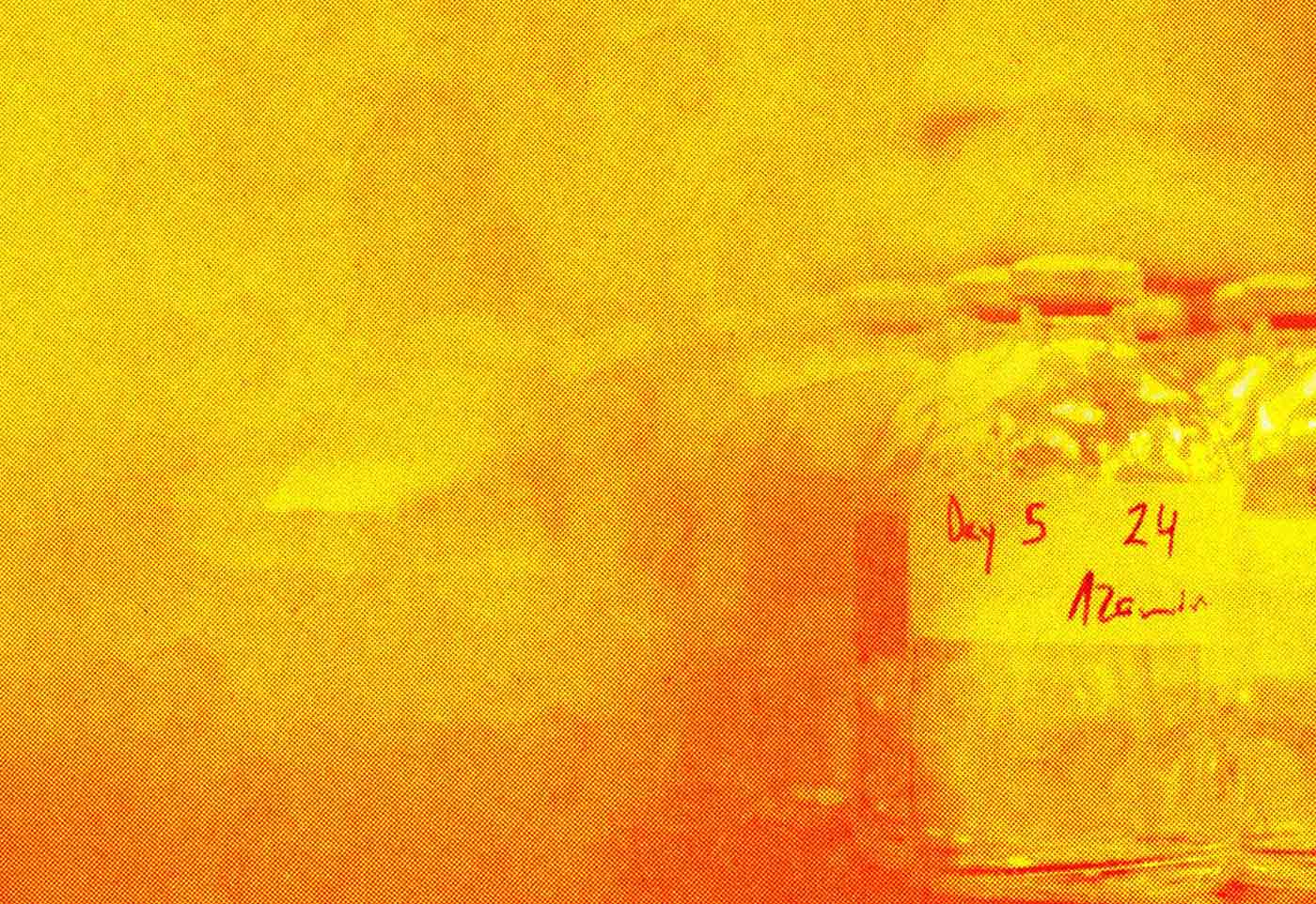
ICP-MS Core Facility
If you are interested in learning more about the ICP-MS Core facility, please contact Shichun Huang.